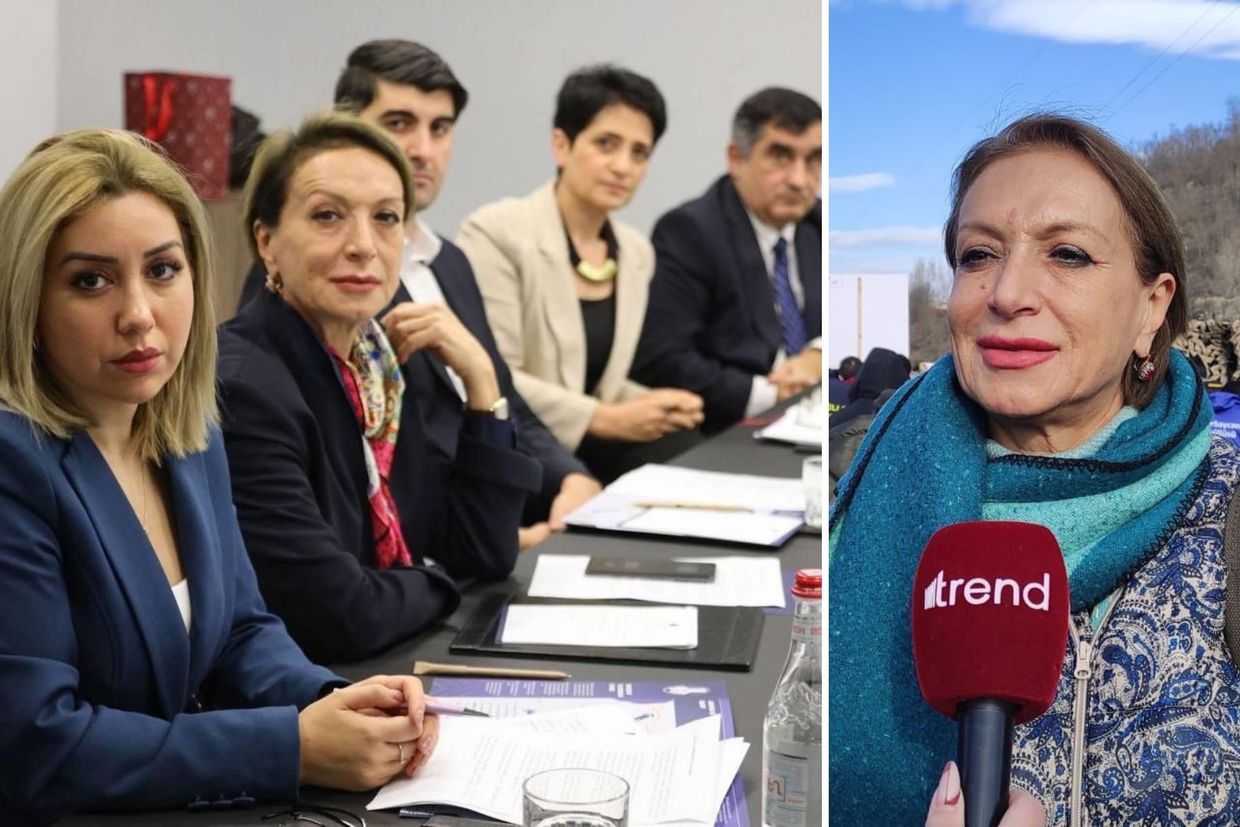
Following a block on all humanitarian access to Nagorno-Karabakh, thousands gathered in the region’s capital of Stepanakert to protest the blockade, vowing to continue the protests indefinitely.
The region has been facing fuel, food, and electricity shortages, exacerbated by a block on Russian peacekeeper access in mid-June. The International Committee of the Red Cross (ICRC), which had been transporting patients from Nagorno-Karabakh to Armenia, has been blocked from entering the region since Tuesday.
[Read more: Azerbaijan blocks Red Cross access to Nagorno-Karabakh]
Nagorno-Karabakh’s State Minister, Gurgen Nersisyan, announced the rally on Thursday, citing the need to start a ‘national movement’.
The protest began in Stepanakert’s central Renaissance Square, with the crowd then marching to the ICRC office in the city and the Russian peacekeeper base on the city’s outskirts.
On Friday, Nersisyan stated that while they had hoped the international community, as well as Russia and Armenia, would take decisive action to stop what he described as a ‘deadly disaster’, it had turned out that ‘everyone just watches everything as an observer’.
He also railed against the residents of Nagorno-Karabakh being used as ‘coins’ in conflicts and relations between states, stating that a conflict between the West and Russia was being conducted at the expense of the lives of the people of Nagorno-Karabakh.
‘What do you need? What are you waiting for? Do you want us to have corpses of people in this square every day for you to respond?’, Nersisyan said.
Nagorno-Karabakh’s Human Rights Defender, Gegham Stepanyan, added that the blockade had reached a critical point since humanitarian access to the region had been cut.
‘Our people stand under the real and undeniable threat of starvation, forced subjugation and genocide’, he stated.
Nersisyan stated that the rallies would continue on a daily basis.
The rally was organised as the region’s first month without any humanitarian supply comes to an end. Russian peacekeepers were the only actors permitted to support the region with food and other goods, but were banned from entering after a 15 June clash between Armenian and Azerbaijani forces.
[Read more: Food shortages and fear as peacekeepers refused entry to Nagorno-Karabakh]
On Tuesday, Azerbaijan blocked Red Cross access to Nagorno-Karabakh, accusing drivers employed by the organisation of ‘smuggling’ mobile phones, cigarettes, and fuel into the region. The Azerbaijani government requires those entering Nagorno-Karabakh from Armenia to declare all goods they carry.
The EU and the US have demanded that ICRC access to the region be restored. They have also called for unrestricted movement of people and goods along the Lachin Corridor.
Baku offers to provide assistance
Armenia’s Foreign Ministry stated on 12 July that the region had recorded an increase in mortality rates linked to medicine shortages, and a block on humanitarian access.
It added that those who were transported to Armenia by the ICRC were subjected to ‘humiliating procedures and degrading treatment’ by Azerbaijani forces.
‘[Patients and those travelling with them were] filmed and subsequently exploited by the Azerbaijani propaganda machine as a tool to falsely depict an unhindered movement of people through the Lachin corridor’, the Foreign Ministry claimed.
The region has also been facing growing food shortages, with various staple foods entirely absent from the market for months.
Azerbaijani Foreign Minister Jeyhun Bayramov stated on Friday that Azerbaijan could provide supplies to people in Nagorno-Karabakh along the Aghdam-Stepanakert road.
Bayramov also stated that it would be possible for Nagorno-Karabakh Armenians to exit the region for medical purposes, if it was through the mediation of the Red Cross, and ‘observing the rules of the checkpoint’.
Additional reporting by Marut Vanyan.
For ease of reading, we choose not to use qualifiers such as ‘de facto’, ‘unrecognised’, or ‘partially recognised’ when discussing institutions or political positions within Abkhazia, Nagorno-Karabakh, and South Ossetia. This does not imply a position on their status.








